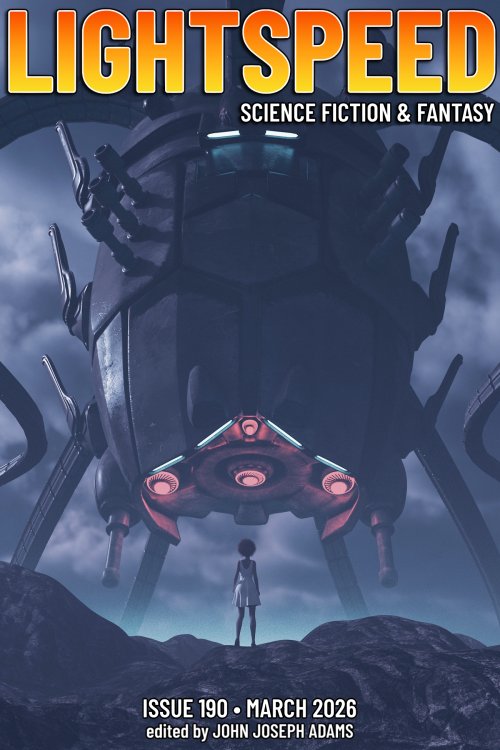“Ancestor Code” is a philosophical look at the intersection of culture and technology. What was the inspiration behind this story?
Something I have been thinking much about is human evolution and the way technology has essentially become what defines it, but with it comes climate change, comes war and disasters, comes progress—yet even with that progress, it seems we are always taking two steps forward and two steps back, making mistakes and mending the mistakes with more mistakes we like to believe are truly solutions. While some are able to keep up, excel, others are left behind. We gain new skills just to see the loss of other necessary ones. Sometimes I think about the beauty of human creations, and other times I contemplate how these same creations would be seen by those who are non-human—would it be just as vibrant, colourful, magical, or grey, dull, and vehicles of destruction.
What was the writing process like? What was your favorite part when writing it, and/or did you run into any challenges?
Often with flash pieces and poetry, they come to me in a flurry of images, words, emotions that I write down in one sitting, often with halts, and I think that fervent and adrenaline-filled feeling is what I enjoyed most about writing this piece specifically—the moment of philosophical rush that gets placed into a string of words like stream of consciousness from beginning to end.
Your story looks at what we stand to lose if we don’t preserve the past, and what could happen if we rely too much on technology to do so. What do you think we stand to lose or gain if we rely too much on technology to store our history?
I’ve been looking lately into the concepts of post-humanism and transhumanism, and how that will impact our current traditions, values, and beliefs, particularly when it comes to the definition of humanity and what it means to be human, death and the afterlife, as well as religion. Something I wonder about is the increasing unreliability of memory and shortening attention spans, and if this might further diminish the more we rely on technology to remember for us,—and given the intangibility of data and code, what would happen should it all become lost. But I also think about the merits of technology in its ability to create global connection, informing us of international conditions, and yet, with technology comes ease of further manipulation of information and history, reminiscent of 1984, where the citizens simply take the information fed as sound and true even if false.
What’s next for you? Do you have any projects you’d like to talk about?
Something that is ever-present in human history is stories—whether they take the form of small talk, oral folklore, media, books, performances, among others—and my first novel explores the role of stories in our society and its cultural and political development. Hopefully an announcement comes soon, but until then . . .! In the meantime, I have a dark science fantasy novella duology forthcoming with Titan Books in 2025, the first in the Natural Engines series is titled A Palace Near the Wind, now available for preordering.
Enjoyed this article? Consider supporting us via one of the following methods:










